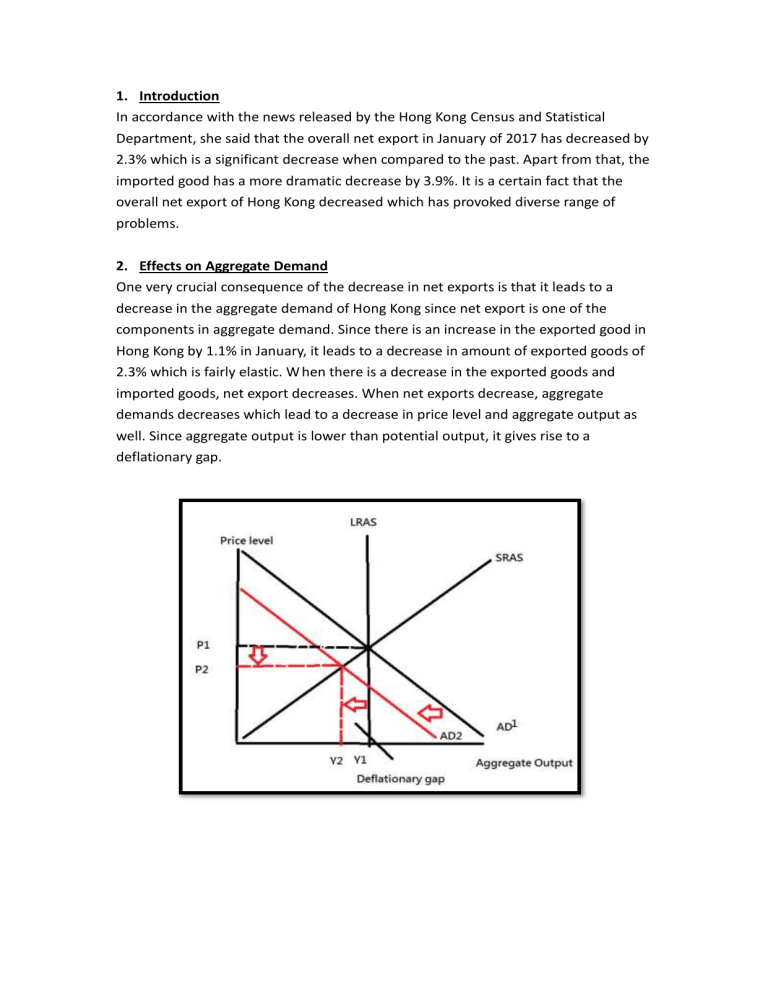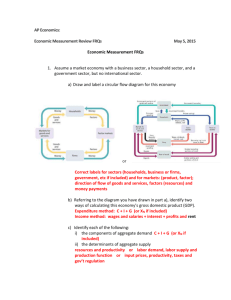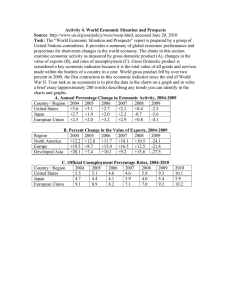
1. Introduction In accordance with the news released by the Hong Kong Census and Statistical Department, she said that the overall net export in January of 2017 has decreased by 2.3% which is a significant decrease when compared to the past. Apart from that, the imported good has a more dramatic decrease by 3.9%. It is a certain fact that the overall net export of Hong Kong decreased which has provoked diverse range of problems. 2. Effects on Aggregate Demand One very crucial consequence of the decrease in net exports is that it leads to a decrease in the aggregate demand of Hong Kong since net export is one of the components in aggregate demand. Since there is an increase in the exported good in Hong Kong by 1.1% in January, it leads to a decrease in amount of exported goods of 2.3% which is fairly elastic. W hen there is a decrease in the exported goods and imported goods, net export decreases. When net exports decrease, aggregate demands decreases which lead to a decrease in price level and aggregate output as well. Since aggregate output is lower than potential output, it gives rise to a deflationary gap. 3a. Effects on the Gross Domestic Production Apart from the effect on aggregate demand, it also causes a decrease in Gross Domestic Product. Since net exports decrease, the Gross Domestic Product also decreases. However, such the decrease in net exports does not equally equivalent to the decrease in the Gross Domestic Product. Its effect has also brought along with some industries related to trading (importing and exporting), for instances, some transport industries. They may receive fewer orders when fewer goods are exported. As a result, less business is created locally and there is a further decrease in the Gross Domestic Product. 3b. Limitation on the Gross Domestic Production However, the estimated Gross Domestic Production may not always be the actual Gross Domestic Production since there are some limitations. Citing an example, there maybe are some unreported or even some illegal exported and imported goods which happen locally but are not taken into account. As a result, the Gross Domestic Production may be underestimated. 4. Recommendation To alleviate this problem, it is suggested that expansionary fiscal policy should be implemented. As long as the government decreases the Export Duty, then it will encourage more goods to be exported. Net exports increase and aggregate demands also increase which give a rise to increase in price level and aggregate output. Therefore, deflationary gap are eliminated. Another benefit of the decrease in Export Duty is that it can also increase the Gross Domestic Products. Once duty are decreased, the disposable income for those industries increase, followed by an increase in consumption, and finally cause an increase in the Gross domestic Production since they may use the extra money to more raw materials. 5. Conclusion By way of conclusion, the effects of the decrease in net exports on aggregate demand and gross domestic production are discussed and possible solution is also suggested. It is my hope that more business are encouraged and lead to a increasing trend in the amount of net export in the coming future. The news: Goods exports down 2.3% on March 20, 2017 URL:http://www.news.gov.hk/en/categories/finance/html/2017/03/20170320_1701 58.shtml


